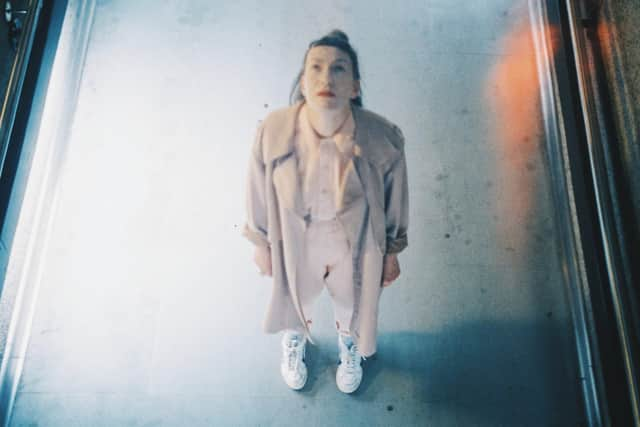Watch: Hebridean Dark Skies Festival 2021 trailer
Tickets for Kathryn Joseph and Lumen go on sale at 10am on Thursday 19 November, along with tickets for talks by award-winning TV presenter Dallas Campbell and renowned climate scientist Tamsin Edwards, an immersive performance by Shetland-based musician Renzo Spiteri, stargazing events with Highland Astronomy, and a night swim with Immerse Hebrides and Stornoway Asronomical Society.
The Hebridean Dark Skies Festival returns to the Isle of Lewis from Friday 5 February to Thursday 18February. The two-week arts and astronomy festival will be a key event in An Lanntair’s winter programme, as one of Scotland’s most prominent island arts venues cautiously continues to welcome back local audiences and winter visitors. The festival is supported by new funding from Caledonian MacBrayne as well as Outer Hebrides LEADER, and is presented in partnership with Stornoway Astronomical Society, Calanais Visitor Centre, Gallan Head Community Trust, and Lews Castle College UHI.
Advertisement
Hide AdAdvertisement
Hide AdFestival programmer Andrew Eaton-Lewis said: “We are delighted to announce more details of our third Hebridean Dark Skies Festival programme. With limited capacity live events now possible on Lewis, our festival is beginning to take more solid shape and we hope to provide something exciting for people to look forward to during the darkest months of the year.


“We are very much looking forward to welcoming Lumen to Scotland for the first time, with an exhibition in An Lanntair’s main gallery, and are delighted to announce that they will be collaborating with Kathryn Joseph on the festival’s opening show. Kathryn Joseph and Lumen will launch what is set to be another stellar opening festival weekend, which will continue with appearances by the popular science communicators Dallas Campbell and Tamsin Edwards, both making their first appearances on Lewis.”
In addition to a series of live events – including a programme of film screenings and workshops still to be announced – the third Hebridean Dark Skies Festival has this year added an online programme. On Thursday 11 February, Highland Astronomy will present an online astronomy event, live from one of the darkest places on Lewis, in association with Calanais Visitor Centre and Gallan Head Community Trust. And in the run-up to the festival there will be a series of weekly online conversations with guests including singer-songwriter Karine Polwart, currently developing a theatre project inspired by supernovas, and health psychologist Kari Leibowitz, whose ‘wintertime mindset’ research has generated international media coverage. The full Campfire Conversations programme will be announced shortly.
The Hebridean Dark Skies Festival takes place against the backdrop of some of most extraordinary dark skies in the whole of the UK – with breath-taking scenery to match. In winter in particular, many astronomical sights can be seen through the naked eye including the Orion Nebula (over 1,500 light years away), the Milky Way Galaxy, and one of the Milky Way’s companion galaxies the Great Andromeda Galaxy. The Northern Lights, Aurora Borealis, can also be seen from the islands, one of the very best spots in the UK for watching this incredible phenomenon.
Highlights of the first two Hebridean Dark Skies Festivals have included singer-songwriters Karine Polwartand Emma Pollock, Sky at Night presenter Chris Lintott, comedian Robin Ince, children’s storyteller Andy Cannon, astronomers John Brown, Nigel Henbest and Amaury Triaud, Lewis’s first ever ‘live moon bounce’ with artist Daniela de Paulis, a Hebridean revival of acclaimed multi-media project Whatever Gets You Through The Night, arts and astronomy project Creativity and Curiosity, and food event g-Astronomy, with award-winning science communicator Roberto Trotta.